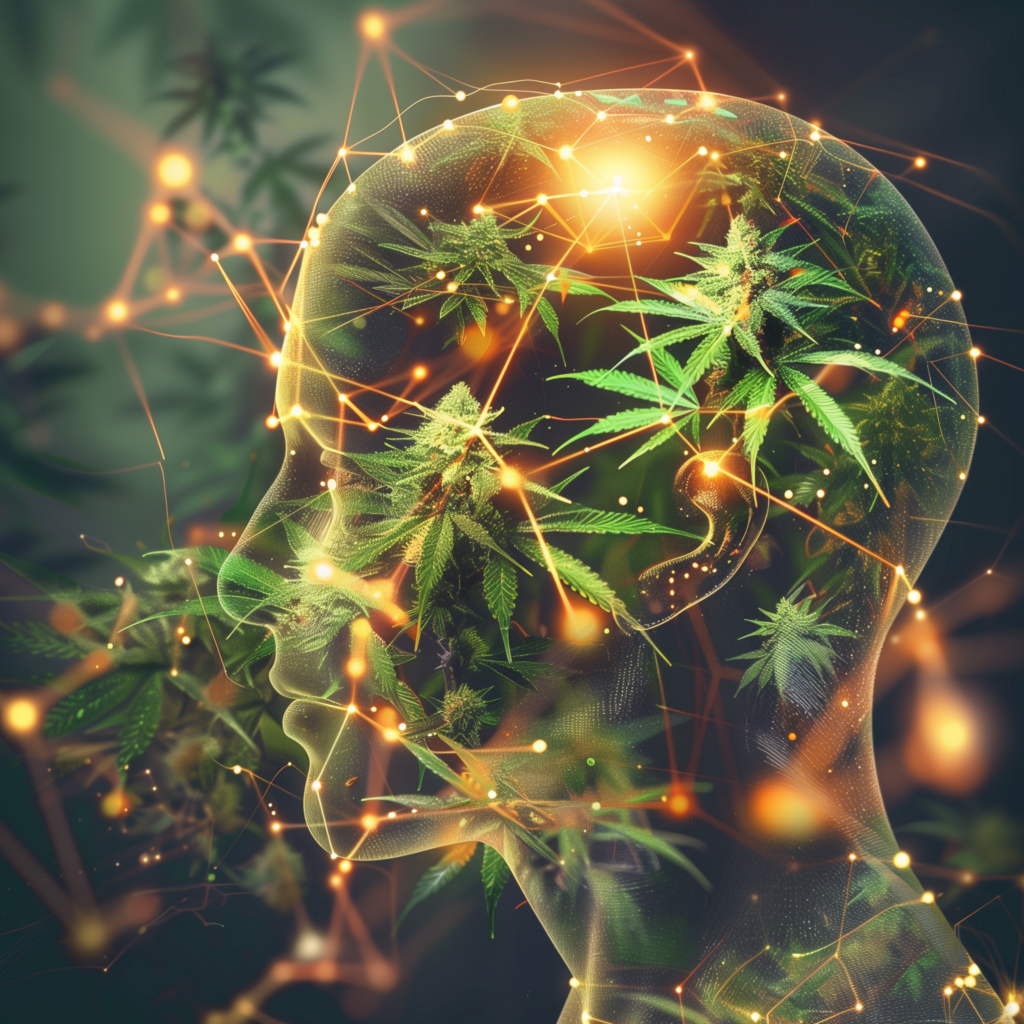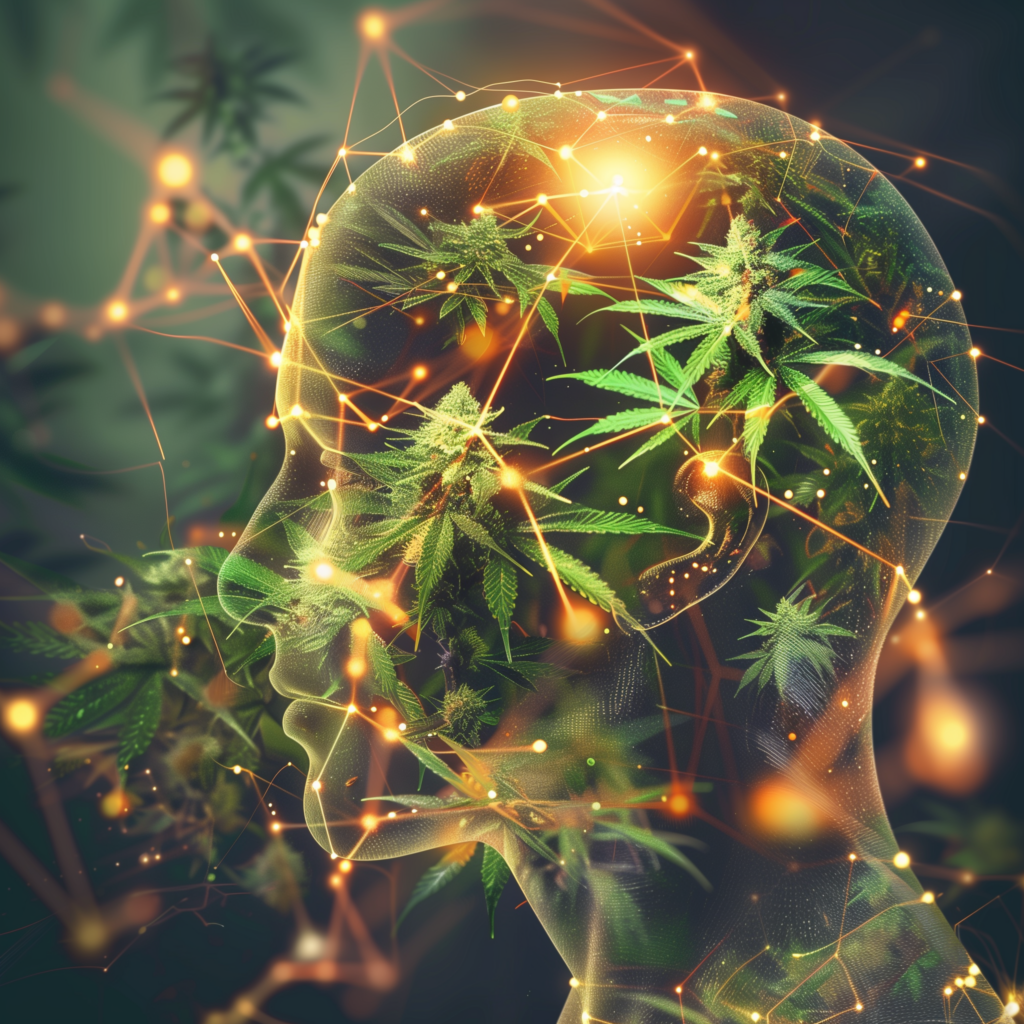Cannabis is one of the most widely used recreational drugs in the world, with an estimated 219 million global users as of 2021. However, the impact of cannabis on the human brain remains hotly debated. Some claim that cannabis kills brain cells and causes long-term cognitive impairment, while others argue it has benefits for brain. But what does the science actually say? Can cannabis kill brain cell?
This article will examine the latest research on how cannabis affects the brain, to help separate fact from fiction. We’ll explore its influence on brain structure and function, cognition, mental health, and brain cell death. The goal is to provide an objective, evidence-based look at this controversial issue – does cannabis really kill brain cells? Understanding the nuanced effects of cannabis is key to making informed choices about use and regulation. So let’s dive in and unravel the complex relationship between cannabis and the brain.
How Cannabis Affects the Brain
Cannabis contains various active compounds, but the main psychoactive component is THC. THC mimics the effects of endocannabinoid, which is a naturally produced neurotransmitters in the brain. Endocannabinoids regulate many functions, including appetite, memory, mood, pain sensation, and more.
THC binds to cannabinoid receptors throughout the brain and body. There are two main receptors – CB1 and CB2. CB1 receptors are abundant in the central nervous system. When THC activates these CB1 receptors, it disrupts normal communication between brain cells.
In simpler terms, THC makes the endocannabinoid system work too hard by overloading the CB1 receptors. It stops the usual flow of brain signals like dopamine and glutamate. This creates too much of these signals in the spaces between brain cells, changing their usual communication.
The endocannabinoid system plays a crucial role in brain development and function. Experts believe that overloading this delicate system with external cannabinoids like THC could have long-term and short-term consequences on cognition, mental health, and brain structure. More research is still needed to fully understand the effects. Now, let’s about short-term impact on cognition.

Short-Term Effects of Marijuana on Cognition
Cannabis can cause immediate, short-term effects on cognitive functions like learning, memory, and attention when a person is intoxicated from the drug. THC is the primary psychoactive compound in cannabis that produces the “high” feeling and is responsible for these cognitive impairments.
When cannabis is consumed, THC floods the brain and overstimulates the endocannabinoid receptors. This disrupts normal signaling between brain cells and makes it more difficult for the brain to process information and form new memories. That is why users often report difficulty concentrating, sustaining attention, or remembering things that just happened while they are high.
Studies show that cannabis intoxication impairs the ability to form new memories and decreases short-term memory performance. Frequent users tend to develop a tolerance where the cognitive effects are less pronounced, but cannabis still produces deficits in learning, memory, and attention even in heavy users.
In addition to effects on memory and concentration, cannabis can alter perception, judgment, and reaction times. This places intoxicated individuals at a higher risk for accidents and injuries. Operating vehicles or machinery under the influence of cannabis is especially dangerous due to slowed reaction times and impaired motor coordination.
Cannabis slow downs learning, memory creation, and attention even in heavy users.
While occasional cannabis use may only result in temporary cognitive impairment while intoxicated, chronic heavy use can lead to persistent issues with memory, learning, and attention even when not actively high. The short-term cognitive effects of cannabis intoxication highlight why responsible use and avoidance of risky activities like driving are so important.
Long-Term Effects on Cognition
The long-term impact of regular cannabis use on cognition and brain health has been extensively studied. While results are mixed, there is evidence that:
Prolonged, heavy cannabis use starting in adolescence can negatively affect cognitive abilities and brain maturation.
Many studies show that regular use of cannabis in teenagers can lower IQ and cognitive abilities into adulthood. Teens who use a lot of cannabis for a long time might experience a drop in IQ of 8 points or more. They might also have problems with memory, attention, and processing information quickly. These effects seem to be stronger with younger ages of starting and more frequent use.
The teenage brain, which is still developing, is especially at risk from the effects of THC, a component of cannabis. Regular use during this important growth period might disrupt the brain’s normal development and connections. The prefrontal cortex, which controls complex thinking, decision making, and impulse control, might be particularly affected. While IQ and cognition seem to stabilize in adults after stopping cannabis use, some problems might still remain.

Consistent, heavy cannabis use in adults has been linked with small changes in brain structure and function. MRI studies have shown smaller hippocampus and prefrontal cortex, altered brain connection patterns, and less activity in brain areas involved in memory, attention, decision making and reward processing in long-term cannabis users compared to non-users.
Adult heavy users have shown problems with memory, attention, and executive functions, but the results have been mixed. More studies are needed to find out if these changes in the brain can be reversed by stopping use.
In summary, regular cannabis use, especially starting in adolescence but also with chronic heavy use in adulthood, may negatively impact cognition and brain health over time. However, many studies have significant limitations, so conclusions remain tentative pending further research.
Effects on Brain Development
The developing brain may be particularly vulnerable to the effects of cannabis. The brain continues to mature and develop into a person’s mid-20s, with important growth and pruning of neurons occurring during adolescence.
Some research indicates that cannabis use during adolescence could negatively impact brain maturation. Areas like the prefrontal cortex, which is involved in planning and decision-making, appear to be most affected. Using cannabis regularly may disrupt neuronal pruning and developmental trajectories in this still-maturing region.

In particular, the endocannabinoid system plays a crucial role in brain development. Introducing exogenous cannabinoids from cannabis during adolescence could interfere with normal endocannabinoid signaling and neuronal growth patterns.
While still an area of active research, some studies have found structural brain changes and reduced cognitive performance in teens who use cannabis frequently. In a simpler language, cannabis can kill brain cells; specially, in teenagers. More research is needed, but these findings highlight the potential risks cannabis may pose to the developing adolescent brain.
The good news is that:
Delaying cannabis use until adulthood when brain maturation is largely complete could reduce these risks.
More education is needed so that teens and young adults understand the potential impact of early cannabis use on the still-developing brain.
Impact on Mental Health
Cannabis use has been associated with an increased risk of developing certain mental health conditions, particularly in individuals who may be genetically or environmentally predisposed.
One of the primary risks is an increased chance of inducing or worsened anxiety and depressive disorders. Several studies have found that regular cannabis use is correlated with a higher incidence of anxiety symptoms and clinical anxiety disorders like generalized anxiety disorder, social anxiety disorder, and panic disorder.

Additionally, frequent cannabis use has been linked to an earlier onset and increased severity of major depressive disorder in vulnerable individuals.
The effects of cannabis on mental health appear to be dose-dependent – higher amounts of use increase the risk of developing anxiety and depression. Stopping cannabis use often leads to improvements in mood and reductions in anxiety. However, some studies have found that long-term use may lead to persisting anxiety or depressive symptoms even after quitting.
Another major mental health risk is that it can cause psychotic symptoms or even full psychosis in people who are already at risk. Cannabis with a lot of THC can cause severe psychosis while under the influence and can even lead to long-term psychotic disorders like schizophrenia.
This is especially true for people who have a family history of psychosis. The risk is highest for those who use cannabis frequently and those who start using it in their early teens, while their brains are still developing.
In summary, while cannabis may have therapeutic potential for some mental health conditions, it carries substantial risks of increasing anxiety, depression, and psychosis among vulnerable individuals. Care should be taken to moderate intake and avoid early initiation of use.
Brain, Memory and Marijuana
The hippocampus is a brain part that helps us learn and remember stuff. Lots of studies have looked at how weed affects this brain part.
The hippocampus has many receptors that weed can bind to, so it can be greatly affected by weed use. Some studies found that regular weed users have a smaller hippocampus than non-users. But what this means isn’t clear yet.
One concern is what happens when you take a lot of THC, the stuff in weed that gets you high. Animal studies show that very high THC doses can kill hippocampus cells. But you’d need higher doses than what normal weed use provides. Still, it’s something to keep in mind.
The hippocampus helps us change short-term memories into long-term ones. Many studies suggest that weed use can make it harder to remember stuff in the short term. This hints that weed might affect our memory storage.
Regarding long-term effects, heavy weed users might find it harder to learn new things and remember them later. For instance, some studies showed that heavy weed users did worse on word learning tests than non-users. But it’s hard to confirm if this is due to weed or other stuff like less education.
In short, taking a lot of weed might kill brain cells (to be particularly hippocampus) and affect our learning and remembering abilities. But it’s unclear how much normal weed use affects these things. We need more research to understand this better.
Cannabis Benefits For Brain
Cannabis contains antioxidant and anti-inflammatory compounds that may help protect brain cells and neural pathways. In particular, the cannabinoids CBD and THC have shown neuroprotective effects in preclinical studies.
CBD appears to be a potent antioxidant that can reduce glutamate toxicity and oxidative stress, which are factors in neurodegenerative conditions like Alzheimer’s and Parkinson’s disease. Research indicates CBD may help block the development of amyloid plaques seen in Alzheimer’s.

THC also displays antioxidant properties and helps stimulate the brain’s endocannabinoid system, which plays a role in regulating inflammation. Animal studies suggest THC may be beneficial at slowing disease progression in models of Alzheimer’s disease.
Additional research has explored the potential of cannabinoids to protect brain cells in conditions like multiple sclerosis, stroke, traumatic brain injury and neuropathic pain. Cannabinoids seem to limit damage to neurons and promote neural repair mechanisms.
More clinical trials are needed, but preliminary evidence points to certain cannabis compounds having neuroprotective effects that could be harnessed to treat neurodegenerative diseases. Responsible cannabis use may offer brain health benefits rather than damage.
Responsible cannabis use may offer brain health benefits rather than damage.
Conclusions and Recommendations
Can cannabis kill brain cells? The effects of cannabis on the brain and cognition are complex. While moderate cannabis use may have limited impact on brain health and function for healthy adults, more research is needed to fully understand the long-term effects. There are clear risks to avoid, especially for adolescents and those predisposed to mental illness.
Some key takeaways include:
- Cannabis can impair memory, attention, and learning, especially with chronic heavy use. These effects appear to be reversible with abstinence.
- Frequent cannabis use may impact brain development in adolescents, with potential consequences on mood, cognition, and mental health. Avoiding use while the brain is still developing is advised.
- Heavy cannabis use is associated with increased risk of dependence and addiction. Limiting use and avoiding high-THC products can reduce this risk.
- Cannabis may exacerbate underlying mental health conditions like schizophrenia. Those with a personal or family history should exercise caution with cannabis use.
- While cannabis shows promise for some medical applications, more research is needed, especially regarding impact on the brain. Consult a doctor before using cannabis therapeutically.
To reduce risks from cannabis use, some recommendations include:
- Avoid driving or operating heavy machinery when using cannabis.
- Limit cannabis use to occasional or weekend use for healthy adults. Avoid daily, heavy use.
- Use lower THC strains and avoid synthetic cannabinoids. Consider using cannabis products rich in CBD.
- Be mindful of mental health changes with cannabis use. Seek help if depression, anxiety, or other issues emerge.
- Support legalization paired with education on responsible use. Advocate for further cannabis research to clarify effects on the brain.
Overall, while moderate cannabis use may pose limited risk for healthy adults, more research is still needed. Caution is advised, especially for adolescents and those with mental health conditions. Following safe use guidelines can help reduce potential harms. More education and open dialogue around cannabis and brain health will better inform consumers and policy.
Frequently Asked Questions
- Can cannabis kill brain cells? While some studies suggest that heavy cannabis use may have harmful effects on the brain, it isn’t clear whether it can directly kill brain cells. The effects of cannabis on the brain are complex and more research is needed.
- What are the short-term effects of cannabis on cognition? Short-term effects include impairments in learning, memory, and attention during cannabis intoxication. Users often report difficulty concentrating and remembering things that happened while they are high.
- What are the long-term effects of cannabis on cognition? Heavy use of cannabis, especially from a young age, can lead to persistent cognitive impairment even when not actively high. This includes problems with memory, learning, and attention. However, the effects are not fully understood and more research is needed.
- How does cannabis affect brain development? Research indicates that frequent cannabis use during adolescence could negatively impact brain maturation and development. However, more research is needed in this area.
- Does cannabis have any benefits for the brain? Cannabis contains compounds that have shown neuroprotective effects in preclinical studies, which could potentially be harnessed to treat neurodegenerative diseases. However, these findings are preliminary and more research is needed.
- What are the recommendations for reducing risks from cannabis use? To reduce risks, it’s advised to avoid driving or operating heavy machinery when using cannabis, limit use to occasional or weekend use, use lower THC strains, monitor mental health changes with cannabis use, and consult a doctor before using cannabis therapeutically.





